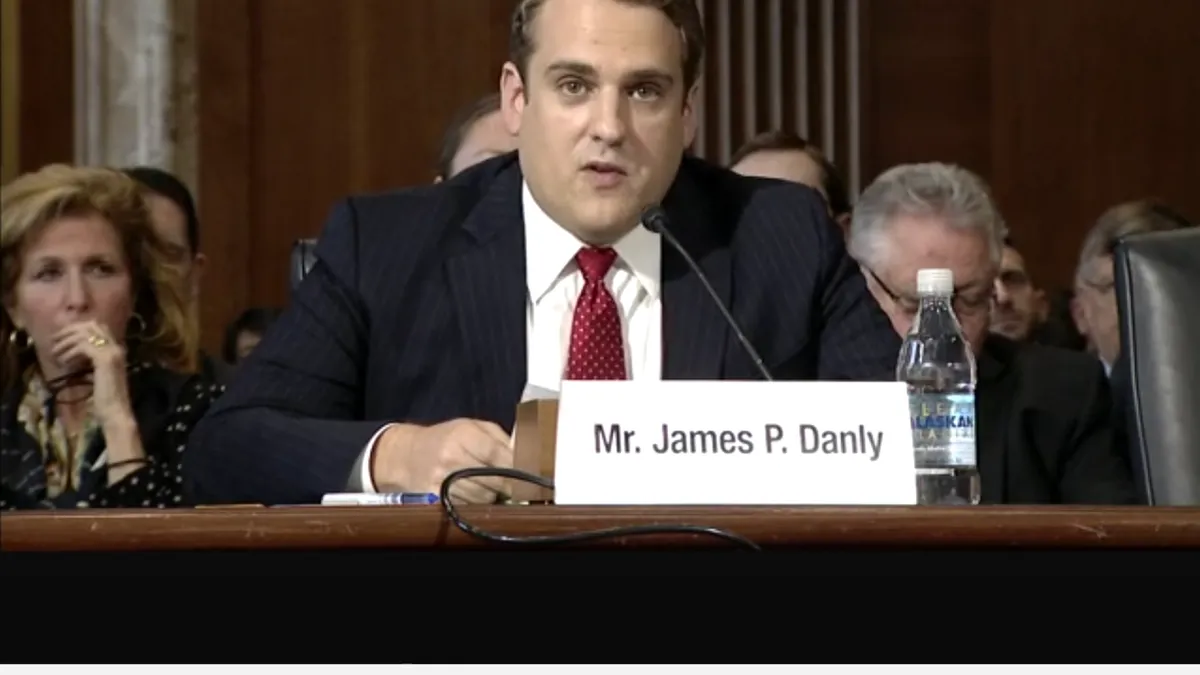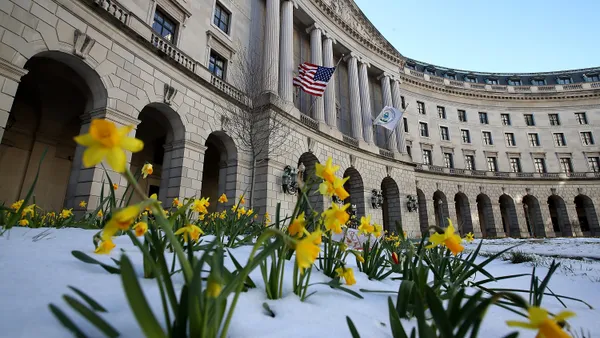Dive Brief:
-
The Federal Energy Regulatory Commission chair's proposal to initiate a show cause investigation into the California grid operator's tariff was shot down Thursday in a 2-1 vote.
-
FERC Chair James Danly proposed issuing a section 206 proceeding following blackouts across California last summer in order to determine whether the market needs modification ahead of next summer. "I think that there is an urgent need for action in CAISO," he said. "Our job is to ensure that rates are just and reasonable. And I think that given the experience in CAISO it is necessary for us to ask the question as to whether or not in our oversight responsibilities, it is necessary to inquire as to the fitness of the tariffs they currently have," he added.
-
But Commissioners Neil Chatterjee and Richard Glick voted against the proposal, instead suggesting the commission host a technical conference on the issue.
Dive Insight:
The California Independent System Operator was forced to prompt rolling blackouts in August following "a perfect storm of events" that included a heatwave and resource constraints. The event received widespread attention from stakeholders across the industry. Senators in September pressed then-FERC nominees Allison Clements and Mark Christie on whether they believed FERC had a role to play in preventing further such incidents.
Danly on Thursday said he believes FERC does have a critical role to play in determining whether tariffs in the state are still just and reasonable, consistent with his view of the commission as primarily an adjudicator that should act within its specific statutory authority, through an investigation into the tariffs known as a 206 proceeding under the Federal Power Act.
"It's not merely the fact that there was a load shedding event, it's the fact that the events that led to it are not unlikely to be replicated," he said. "The heat and the wildfires have seemed to be increasingly common. We've had ever growing reliance on intermittent resources. And we apparently had only two thirds of demand response that was called upon actually available."
California officials have been examining the issue closely: CAISO, the California Public Utilities Commission and the California Energy Commission are all preparing a joint report, anticipated to point to the state's heat wave, changing load patterns, as well as any market flaws that may exist. Chatterjee argued any FERC attempts to further dig into the root causes of CAISO's issues could threaten to impede the grid operator's efforts.
"I believe CAISO needs to undertake intense targeted efforts prior to the coming summer and on a longer term basis to address resource adequacy," he said. "A broad 206 proceeding at this time would distract from the current efforts CAISO and its stakeholders are making."
Glick agreed that FERC should leave the investigation to the state and its grid operator, calling the draft order "ill advised."
"Although California is certainly facing some challenges, … much of it brought about by climate change, including wildfires and periods of extreme heat, the last thing the commission should be doing is using section 206 of the Federal Power Act to say to the state ‘We're from the federal government, we know better than you did,'" he said.
The 2-1 vote against marks a rare instance of a draft order being raised at a commission meeting without it passing. Both arguments likely have merit, said Jeff Dennis, managing director and general counsel at Advanced Energy Economy in an email, though the draft order has not been published.
"In general all three Commissioners articulated legitimate paths forward," he said.















